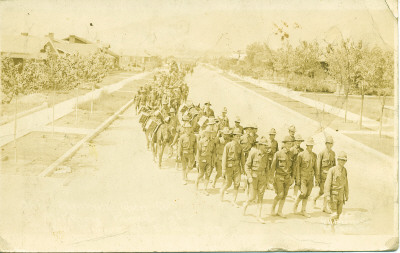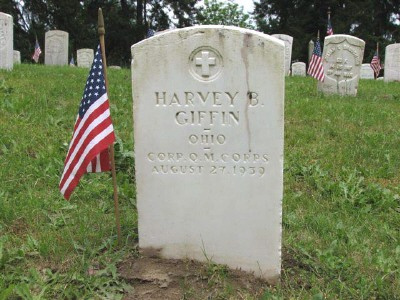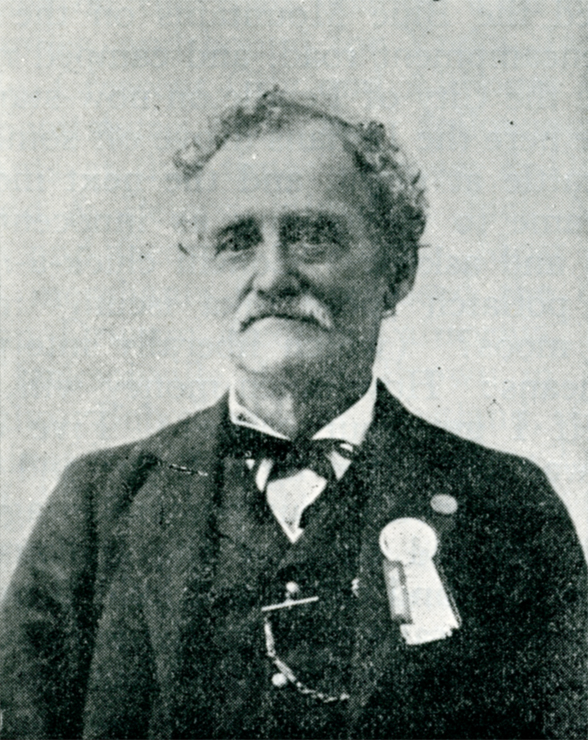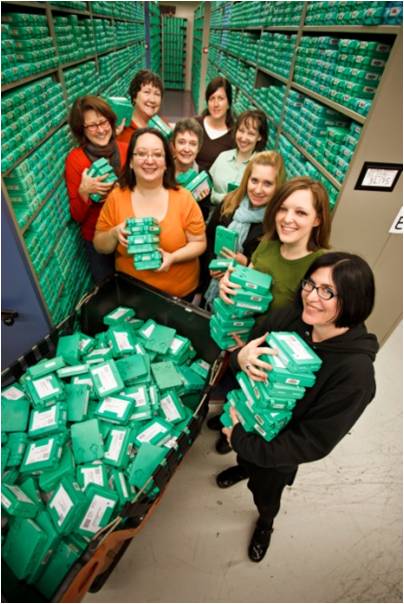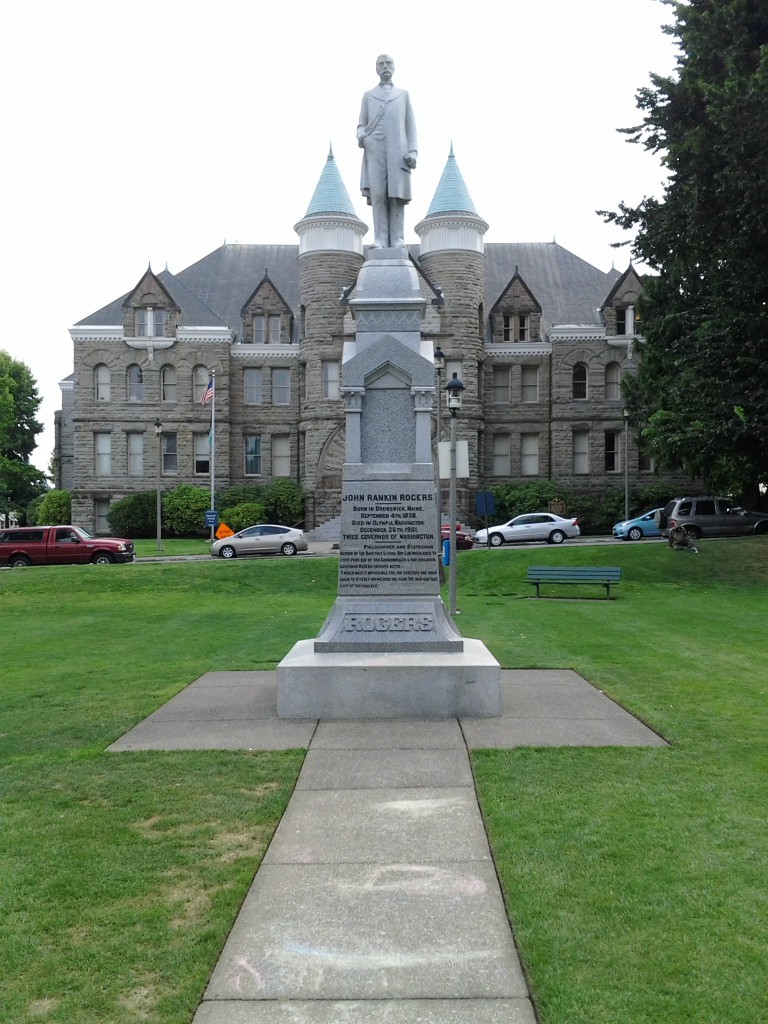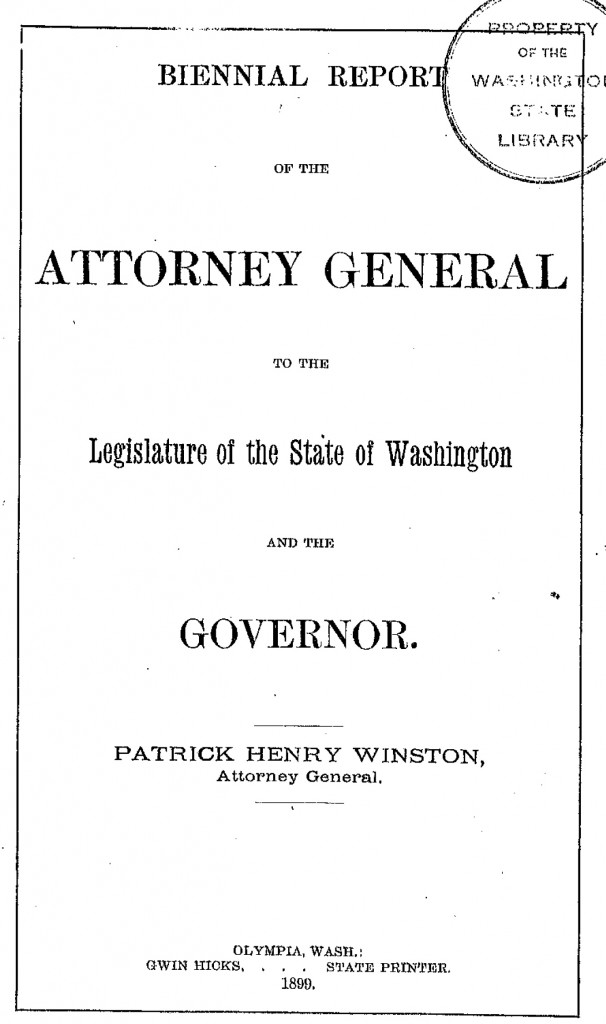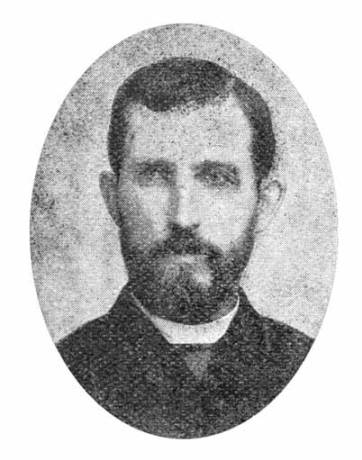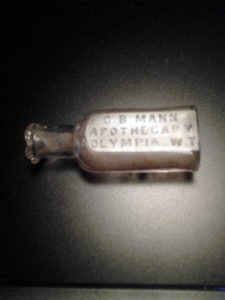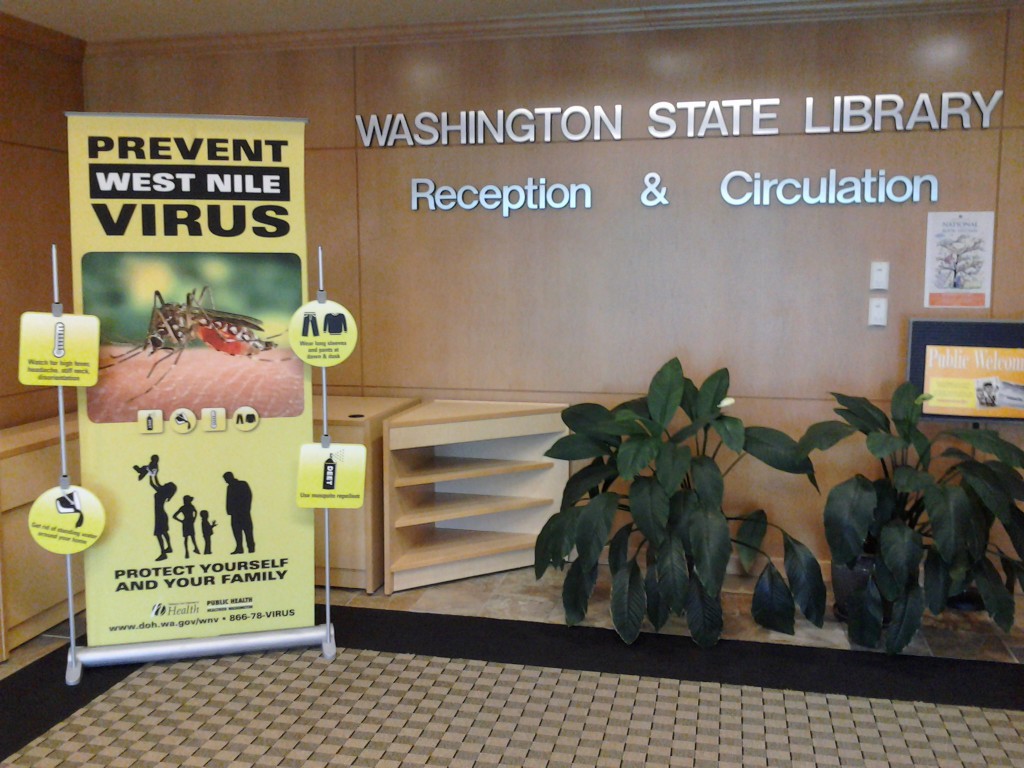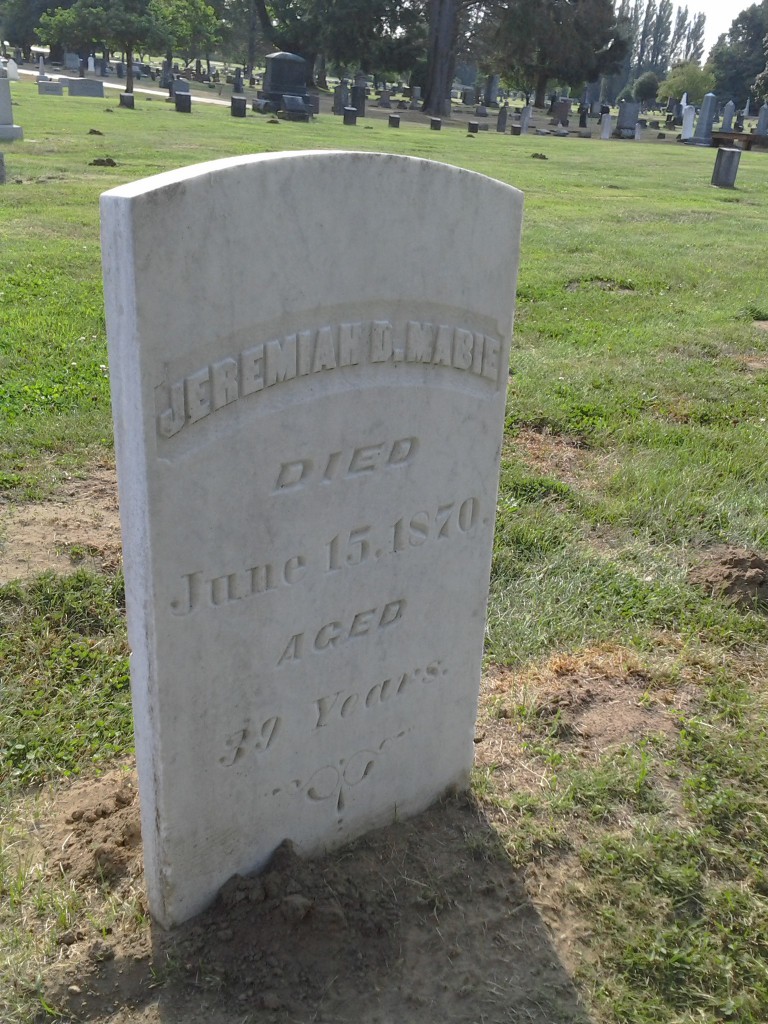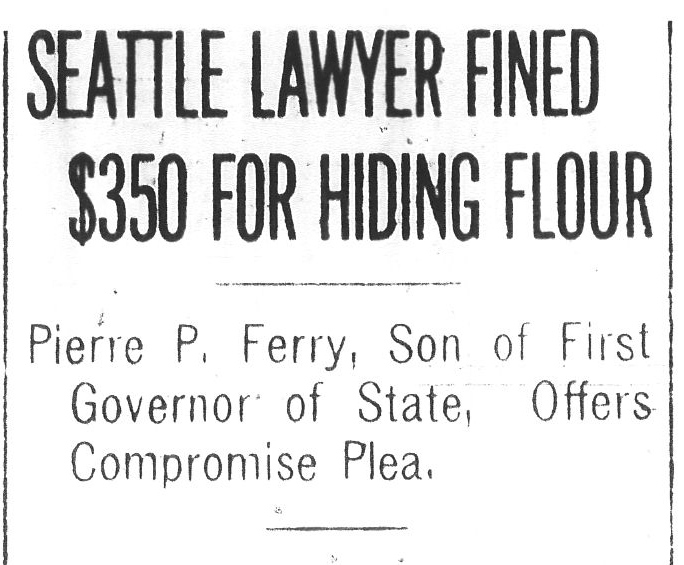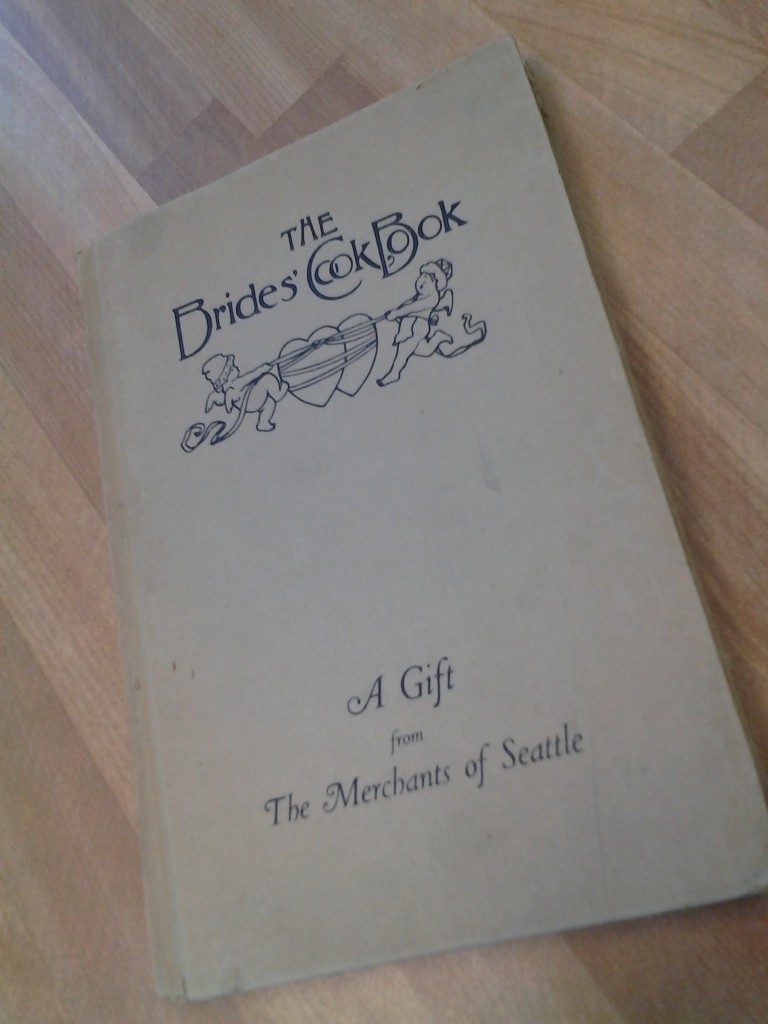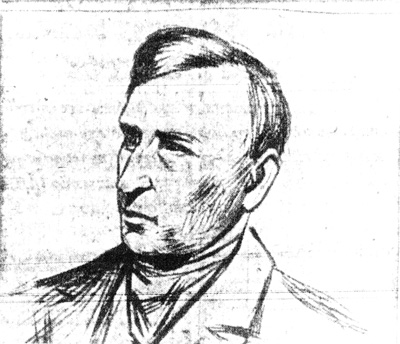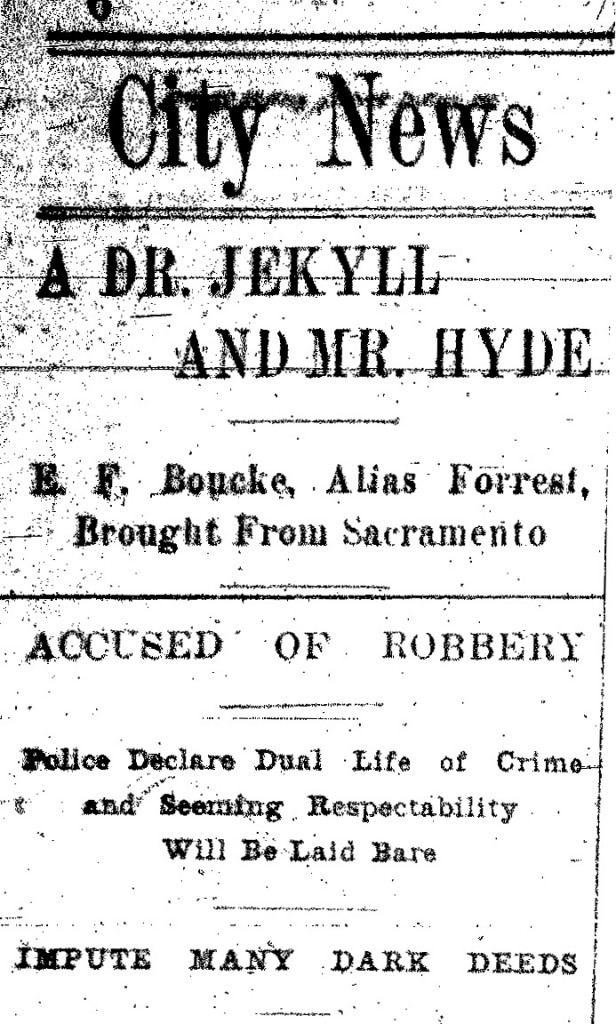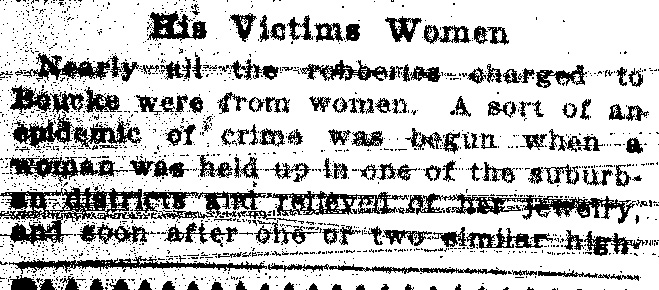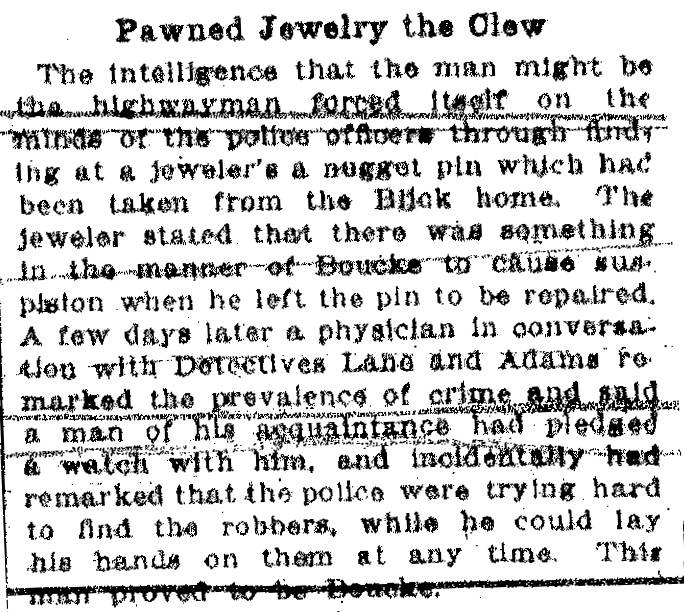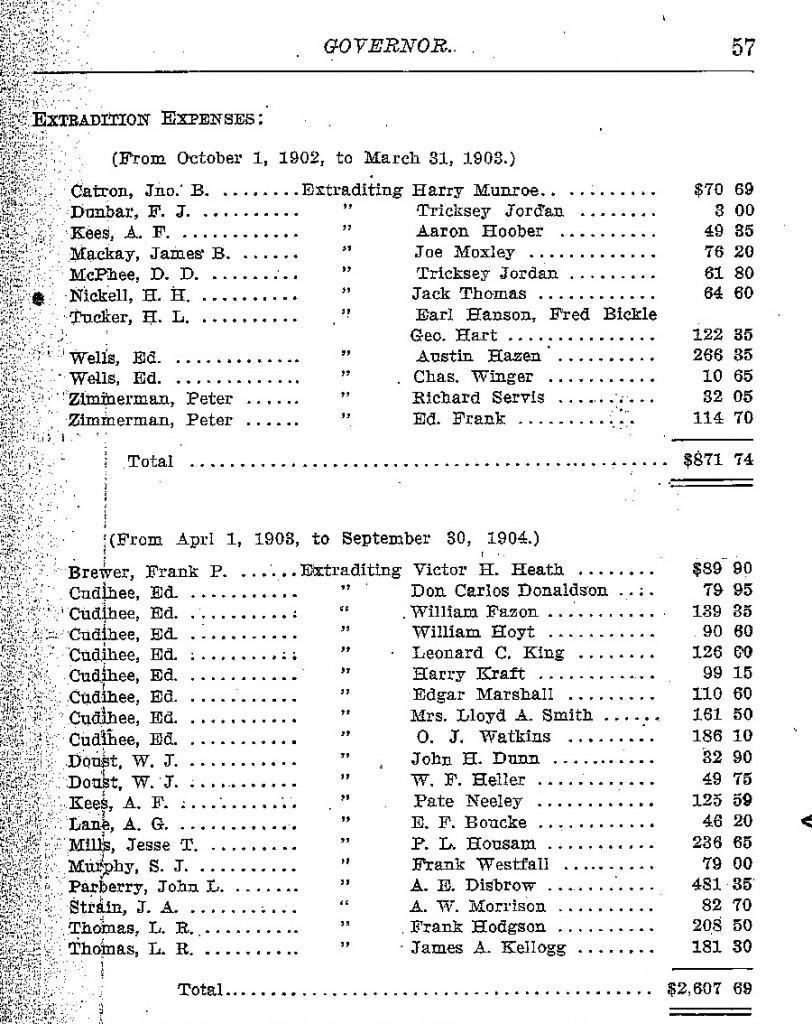From the desk of Steve Willis, Central Library Services Program Manager of the Washington State Library
Fans of Les Misérables might enjoy the following story, found at random from The Raymond Review, Sept. 3, 1913:
VICTOR HUGO’S HERO REAL MAN
J.B. SMITH EXEMPLIFIES JEAN VALJEAN
Is Well Known in Pacific County. Returns Saturday as Harvey Giffin.
“Victor Hugo’s hero of ‘Les Miserables,’ Jean Valjean, has been exemplified in real life and by a resident of Pacific County, who has during the past five years worked in different logging camps throughout the county as a blacksmith and known to his fellow laborers as J.B. Smith.”
“The scene of Smith’s romance, or Giffin’s, as he is now known and which is real name, was laid in Ohio, from which state he has just returned to again take up his residence in Pacific county, arriving in Raymond last Saturday night bearing with him clippings of his old home papers to substantiate his remarkable recital. His story is most unusual and appears in a Ravenna, Ohio, paper as follows:”
I was living in Belmont county, and in 1904 I was helping the Methodist church raise enough money for a bell. One day when I was soliciting names I went down to the depot to see the boys come in from Bellaire, as I knew they would all contribute to the fund.
A man by the name of Charles Brandon came up to me and began calling me names. He was drinking, and I paid no attention to him. He asked me what I was doing, and I told him. Then he said he would put the cleaner on me. He came at me with his fist, and I pushed him away. He went away, but in a little time came back, and, doubling up his fist, he began to call me names again.
Kills the Man
Then I hit him again, and he fell. I thought he was pretending to be hurt, but went over to him and shook him. He didn’t move, so I ran for a doctor, and after an examination, he told me the man was dead. Everybody around there knew I didn’t intend to kill him, but when I asked the doctor what I had better do, he advised me to go and give myself up.
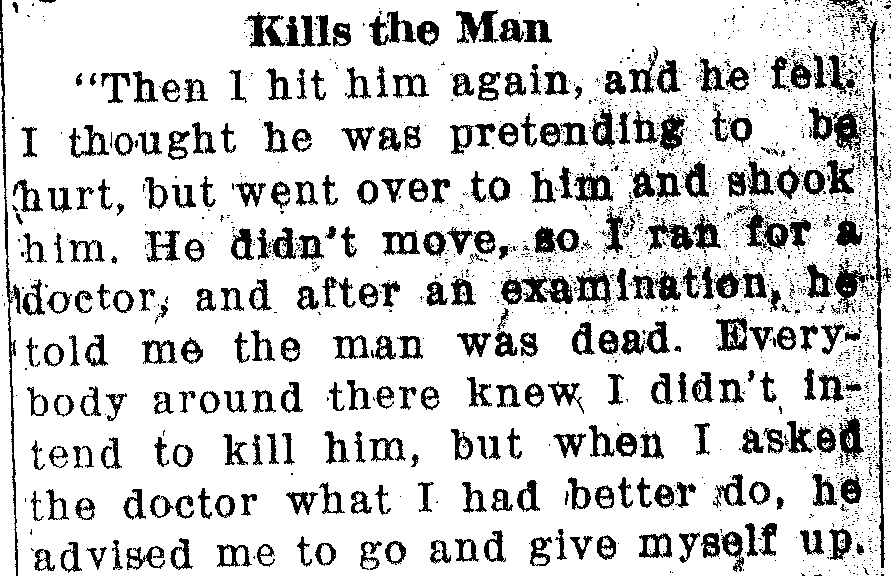 I went to St. Clairsville, the county seat, and told the authorities what I had done. I was put in jail, and after four months I was tried and convicted of manslaughter. They gave me a sentence of six years.
I went to St. Clairsville, the county seat, and told the authorities what I had done. I was put in jail, and after four months I was tried and convicted of manslaughter. They gave me a sentence of six years.
When I had served 12 months, I was paroled by the old board of managers, who said I should never have been sent there. Then I went back to Belmont county to my father’s home. The family of Brandon never blamed me for killing him, nor did they ever put a straw in my way. They knew it was accidental, and done because Charlie was drinking and tried to fight me.
But there were some fellows there who claimed to have a spite against me because I had killed Brandon, and they peddled tales about me, and laid traps to try to get me into trouble again. My father died suddenly of heart trouble, and after that those fellows worried me more than ever.
I didn’t want to get in bad again, so rather than run any risks I decided to break my parole and leave the country. I went to Washington, where I followed my trade of blacksmith. I also lived some time in Oregon. I was out there nearly 7 years.
Becomes Converted
I was leading a straight, clean life, and became converted to religion. I read my Bible constantly and have read it through six times. After my conversion I thought it wrong to evade the law, and while I was in Idaho I made up my mind to return to Ohio and give myself up to the authorities. I went to the sheriff of the county and told him my story. Then I sent a telegram to Governor Harmon, telling him that I wanted to come back, and have my case settled, one way or another.
I waited several days, and getting no answer, I telegraphed again. Still I did not hear anything, and the sheriff told me that evidently the Governor did not want to get out requisition papers for me, and that I might go about my business.
Returns to Ohio
I went back to Raymond, Washington, where I had been living until last May. Then I felt unhappy and wanted to see my mother and sisters, and after that to come to Columbus and serve out my sentence, if necessary.
My mother was living in Ravenna, and two sisters and a brother in Akron. When I had been there a day, a fellow saw me and told the police I had broken my parole, so they arrested me and brought me to Columbus. But you know I had intended coming any way in a few days.
I was brought to Columbus the 23rd of last June, and immediately wrote a statement of my case and sent it to the board of administration and asked to be set free.
I am going back to mother. She wants me, and I can make her more comfortable. I will follow the trade of a blacksmith or carpenter and can make good wages.
“The Wheeling, O., Register of the same date had the following account:”
“That will take some figuring, won’t it? But I’ll get it some way, even if I have to make a full and complete statement of all the facts.”
This from Harvey Giffin, a former well-known local man, who, back in 1904, killed Charles Brandon, at Neffs, O., and for which he was sent to the penitentiary for a six year term. That was in December of the same year. In December of the following year he was paroled and returned to Neffs, where friends of the man he had killed made it so unpleasant for him that he decided to remove himself from this section of the country and went to the west, thereby violating his parole.
Never at any time a bad man, Giffin had little trouble in making friends. He is a blacksmith by trade and soon landed a job in Washington state. Being sober and industrious, he worked his way to a foremanship. Then he joined the church as well as two fraternal orders, the Knights of Pythias and the Eagles, all under a name which he assumed when he went west.
Giffin spent a full seven and one half years in the west before coming back. Immediately after joining his church, however, he determined to give himself up to the Ohio authorities for the violation of his parole, and wired Governor Harmon, then chief executive of the Buckeye state, that he was willing to return if wanted. The Ohio authorities didn’t seem to want him, and after a few months more he returned to Akron to visit his aged mother. An officer there took him into custody and returned him the penitentiary. This was in the later part of June last. A month later his parole was put back in force and yesterday he was handed an unconditional pardon, duly signed by Governor Cox.
Once again a free man, Giffin came direct to this city where he formerly lived, and after spending a day or two with some old friends at Neffs, he will return to Washington. He hopes to take on his right name when he returns to the people who helped him along there and that is what he means, at the outset, when he states that ‘it will take some figuring.
The crime for which Giffin was sent up will be recalled by many readers of the Register. Charles Brandon, although getting up in years, was a powerfully built man [line apparently missing] … on the other hand, weighs less than 160. Brandon, the testimony went to show, had been at Bellaire, and upon alighting from the train at Neffs, picked a quarrel with Giffin, who, at the time was making collections from the miners for a bell for a church which had just been built. Giffin, it is stated, tried to avoid a fight, but when Brandon closed in on him he struck him with his fist, Brandon went down unconscious and died a short time afterward.
To a Register man yesterday Giffin made a statement to the effect that while he had been sorry a thousand times that he was even the indirect cause of Brandon’s death yet he always has felt that Brandon died of heart failure brought on by the frenzy into which he had worked himself, rather than from the effects of the blow. He attributes his pardon to the fact that he was able, in seven years test, to prove that he can ‘make good’ notwithstanding t
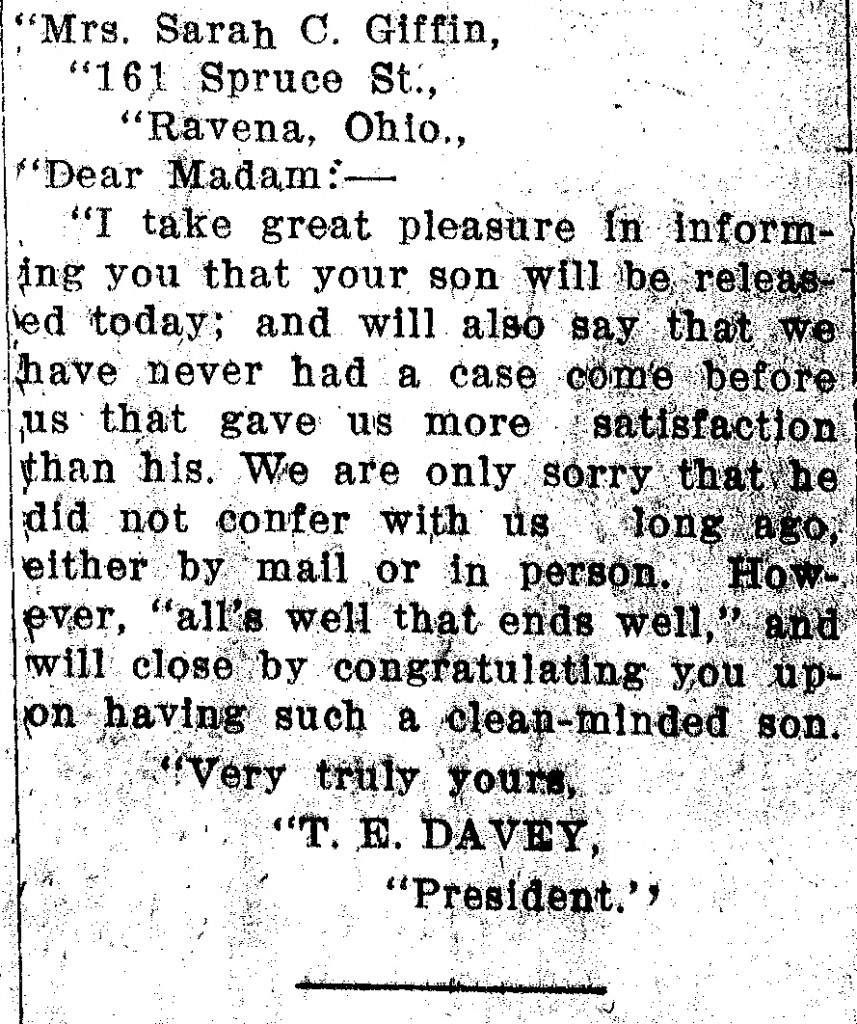
he general belief that few men sent to the penal institutions of the country ever rise again.
That Mr. Giffin had the sympathy of the authorities familiar with the case is proven by the following letter written to his mother by President T.E. Davey, of the Ohio Board of Administration, under date of Aug. 16th, 1913, and which is now in Mr. Giffin’s possession:
“‘Mrs. Sarah C. Giffin,
161 Spruce St.,
Ravena, Ohio.,
Dear Madam:—
I take great pleasure in informing you that your son will be released today; and will also say that we have never had a case come before us that gave us more satisfaction than his. We are only sorry that he did not confer with us long ago, either by mail or in person. However, ‘all’s well that ends well,’ and will close by congratulating you upon having such a clean-minded son.
Very truly yours,
T.E. Davey,
President.”
Charles Brandon, the victim of the punch, was a 61 year old Union veteran who had survived two POW experiences during the Civil War. According to his pension papers, he was classified as an invalid.
Giffin, who was in his late 30s during the incident, was not a large man, but he had considerable military experience as well. He had been in the Army in the 1890s and had served in battles in Cuba during the Spanish-American War. But as we saw, once he returned to civilian life events became even more exciting than any military exploit.
Harvey did not stay a civilian for long. He rejoined the Army in 1916, and first served on the Mexican border during the Villa raids and was later sent to Europe during the Great War. He died August 27, 1939 in the Washington Soldiers Home in Orting, Washington.
The short-lived Raymond Review is one of several newspapers from Raymond, Washington available for viewing or via interlibrary loan from the Washington State Library.
[Photo of postcard sent by Harvey to his uncle, James Giffin. The reverse side reads: “Oct. 3 Dear Uncle i ritte you a fine liner i am OK On top of a Mountain on the Borders of Mexico gurding a pass thrue the Mountains with a Machine Gun. i and 2 more felows we got our guns be hind a stone fort we Bilt if Villey trys to come thru a gin we will get some of them. he has come thru be fore we got Machine Guns in different places Harvey Giffin Eight Ohio Inf Machine Gun bo” then “El Paso Texas.”]
[Photos supplied by Harvey’s great-nephew, Terry Magyar]






